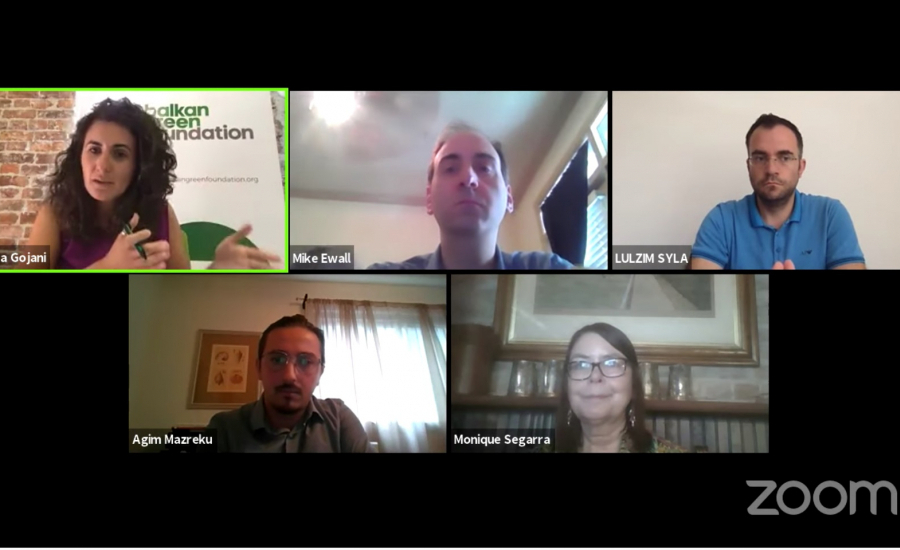17/08/2020
One of the solutions to create windows of opportunities for actors that enable the socio-technical transition to clean and sustainable energy is encouraging manifestation of energy democracy principles. Agim Mazreku discussed this issue in Green Talk with Monique Segarra, Mike Ewall, Rinora Gojani and Lulzim Syla as part of DokuTalks panel: Energy Democracy in Kosovo.
Monique Segarra explained the meaning of energy regime, which according to her encompasses actors, politicians, bureaucrats, who work with energy sector, firms, utilities, infrastructure, and customer preferences, pricing, etc., and stressed that it’s a very hard thing to transform, as we have to think about how can we innovate and move to low carbon economy. She mentioned some of the challenges to that, and some windows of opportunity to do that, as well as bringing examples how the regime can resist, and how the energy regime can be transformed.
“What’s important to think about is that we could look at existing energy regimes and it can be seen almost instrumentble to challenge them. You have firms that are deeply impeded, have close connection to politicians and bureaucrats, have a lot of money, have a lot of ability to influence the discourse and the narrative around fossil fuels and the importance of fossil fuels to energy and economic development. But those actors can shift. Even within status quo regime there can be movement. The challenge and interest for NGO’s, for innovative state leaders is to be able to identify how to persuade and how to go around the incompetent regime and actors. And then how to appeal to civil society to help propel that push forward, either through discussion about climate change, but also by linking move to low carbon economy to economy growth and development”, said Segarra.
Agim Mazreku pointed that a lot of cases mentioned by Segarra have a lot of similarities to Kosovo.
Rinora Gojani confirmed that every example given by Segarra in theory, in Kosovo was witnessed in practice.
“We definitely witnessed regime resistance, when it came from the people from government and they were promoting coal, basically by trying to build a new power plant in Kosovo”, she said.
Gojani continued by stressing the argument that Kosovo is already suffocated by coal, and that the time has shown that their studies were right.
Lulzim Syla gave insights regarding current energy situation in Kosovo and possible capacities of the resources. Regarding energy transition he stressed that “first of Kosovo needs to create Energy Transitional Council”.
Mike Ewall said that the best way to stop polluting projects is to have active communities.
“What we advise is use people power to fight money power”, he said.
In Kosovo, a socio-technical transition to renewable energy through principles of energy democracy can tackle unemployment, progress education, reduce health risks associated with coal usage, and overall sustain a healthy human ecology.
You can watch the Green Talk here.



